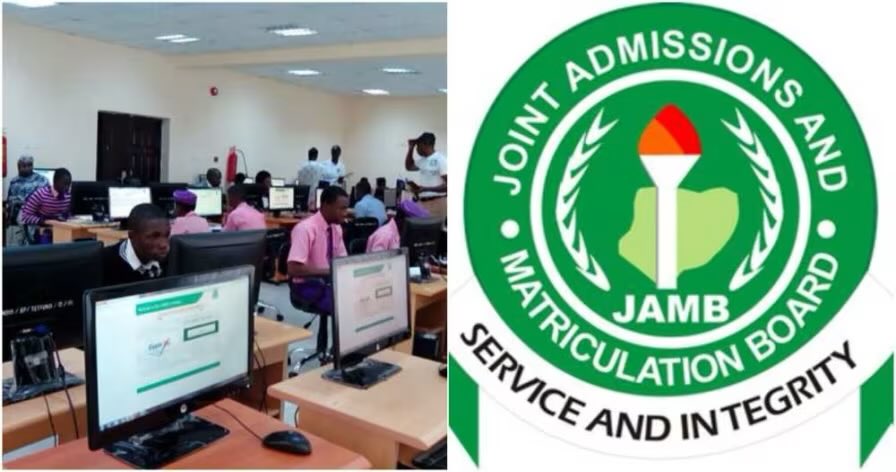The Deputy Speaker of Nigeria’s House of Representatives, Hon. Benjamin Kalu, made headlines with a bold and urgent call for the Joint Admissions and Matriculation Board (JAMB) to commission an independent and transparent audit of its entire examination infrastructure. This demand comes in the wake of widespread technical glitches that marred the 2025 Unified Tertiary Matriculation Examination (UTME), leaving nearly 380,000 candidates—primarily in Nigeria’s South-East and Lagos regions—stranded and uncertain about their academic futures. Kalu’s press conference in Abuja has sparked a national conversation about the reliability of JAMB’s Computer-Based Test (CBT) system, the fairness of the examination process, and the need for systemic reforms to safeguard Nigeria’s education sector.
Breaking Down the Proposal
During his press conference in Abuja, Hon. Benjamin Kalu outlined a comprehensive plan to address the crisis and prevent future occurrences. His primary demand is for JAMB to commission an independent and transparent audit of its entire examination infrastructure. But what exactly does this entail? Let’s break it down:
-
Scope of the Audit
Kalu emphasized that the audit must cover every aspect of JAMB’s CBT system. This includes:-
The CBT Engine: The core software that powers the examination, ensuring questions are delivered securely and answers are recorded accurately.
-
Question Delivery: The process by which exam questions are transmitted to candidates’ computers, which failed in many centers due to the missing system patch.
-
Answer Validation: The mechanism that verifies and scores candidates’ responses, which was compromised in affected centers.
-
Result Collation: The final step of compiling and publishing results, which has been a point of contention in past UTMEs due to errors and delays.
-
-
Independent Experts
To ensure credibility, Kalu insisted that the audit be conducted by external professionals, including system engineers, academic measurement experts, and technology auditors. By excluding JAMB’s internal staff from the process, the audit would avoid bias and provide an objective assessment of the system’s strengths and weaknesses. -
Transparency
Kalu stressed the importance of making the audit process and findings public. Transparency is critical to restoring trust among candidates, parents, and educational stakeholders who have grown skeptical of JAMB’s ability to deliver a glitch-free examination. -
Additional Reforms
Beyond the audit, Kalu proposed several proactive measures to strengthen JAMB’s operations:-
Stronger Deployment Validation Protocols: To ensure that critical updates, like the system patch that caused the 2025 crisis, are properly implemented across all centers.
-
Real-Time Monitoring: A system to track the performance of CBT centers during the exam, allowing JAMB to address issues as they arise.
-
Remark and Appeal Mechanism: A clear, accessible process for candidates to challenge their results or request a re-evaluation, addressing concerns about unfair scoring.
Why This Matters: The Stakes for Nigerian Students
The UTME is more than just an exam; it’s a lifeline for millions of young Nigerians aspiring to higher education. With over 1.9 million candidates registering for the 2025 UTME, the scale of the examination is staggering. The technical failures that affected 380,000 students represent a significant portion of the candidate pool—students who may now face delayed admissions, lost opportunities, or the financial burden of re-registering for a supplementary exam.The regional concentration of the glitches in the South-East and Lagos also raises concerns about equity. These regions are home to some of Nigeria’s most competitive academic institutions, and students from these areas often face intense pressure to perform. The disruptions could disproportionately disadvantage candidates from these regions, exacerbating existing inequalities in access to education.Moreover, the crisis has eroded public trust in JAMB. For years, the board has faced accusations of mismanagement, from inflated registration fees to inconsistent result releases. The 2025 UTME failures have amplified these criticisms, with many questioning whether JAMB is equipped to handle the technological demands of a fully digital examination system.The Case for an Independent Audit
An independent audit, as proposed by Kalu, could be a game-changer for JAMB and the Nigerian education system. Here’s why:-
Restoring Trust
By inviting external experts to scrutinize its systems, JAMB can demonstrate a commitment to accountability. A transparent audit report, shared with the public, would show that the board is serious about addressing its shortcomings. -
Identifying Systemic Flaws
The audit would provide a comprehensive diagnosis of JAMB’s infrastructure, pinpointing vulnerabilities in the CBT system. This could lead to targeted upgrades, such as improved software, better server capacity, or enhanced cybersecurity measures. -
Preventing Future Crises
By implementing Kalu’s proposed reforms—such as real-time monitoring and stronger validation protocols—JAMB could minimize the risk of future technical failures. A proactive approach would save students from the heartbreak and frustration experienced in 2025. -
Setting a Precedent
An independent audit could set a new standard for transparency and accountability in Nigeria’s public institutions. If successful, it could inspire similar reforms in other sectors plagued by inefficiencies.
Challenges and Criticisms
While Kalu’s proposal has been widely praised, it’s not without challenges. Conducting an independent audit of JAMB’s sprawling infrastructure will be a complex and costly endeavor. Identifying qualified external experts, coordinating the audit process, and implementing the resulting recommendations will require significant resources and political will.Some critics may argue that JAMB should focus on immediate solutions, such as rescheduling exams for affected candidates or issuing refunds, rather than investing in a lengthy audit. Others may question whether an audit alone can address deeper systemic issues, such as inadequate funding for education or disparities in access to technology across Nigeria’s regions.Despite these concerns, the consensus among education stakeholders is that an audit is a necessary first step. Without a clear understanding of what went wrong in 2025, JAMB risks repeating the same mistakes in future examinations.What’s Next?
As of May 19, 2025, JAMB has yet to formally respond to Kalu’s demands. The board has acknowledged the technical issues in the 2025 UTME and promised to address the concerns of affected candidates, but details remain sparse. Whether JAMB will embrace the call for an independent audit remains to be seen.In the meantime, candidates and parents are left in limbo, awaiting clarity on supplementary exams, result releases, and admission timelines. Education advocacy groups have begun mobilizing, with some planning protests to demand accountability from JAMB. On X, hashtags like #FixJAMB and #UTME2025 have gained traction, amplifying the voices of frustrated stakeholders.For Deputy Speaker Kalu, this issue is personal. Representing a constituency in the South-East—one of the hardest-hit regions—he has vowed to keep the pressure on JAMB until meaningful reforms are implemented. His press conference is just the beginning of what could be a transformative moment for Nigeria’s education system.Join our Whatsapp channel to stay updated always! -
-



bdttz5